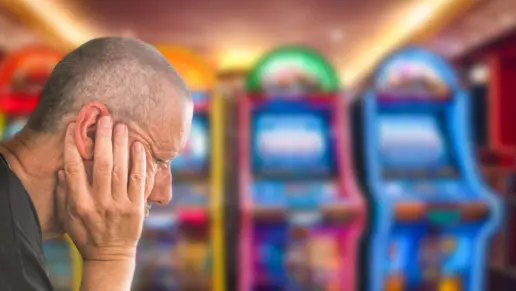What is Sex Addiction?
Sex addiction is a condition where an individual exhibits a persistent inability to control intense, repetitive sexual impulses or urges.
These urges result in recurring sexual behavior that negatively affects familial, social, educational, or occupational areas of functioning over an extended period of six months or more. This dysregulated behavior pattern is often referred to in healthcare as hypersexuality.
It’s important to remember that not everyone who engages in sexual activities such as masturbation, watching pornography, cybersex, or having multiple sexual partners has a sex addiction. Rather, an individual starts to become a sex addict when these activities start to impact normal daily life.
Is Sex Addiction Similar to Other Addictions?
Individuals with sex addictions have cravings similar to those experienced by people with other addictions. Their compulsive sexual behavior is similar to someone with substance use disorder having a drink or taking a pill. Over the long term these behavioral addictions can wreak havoc on a person’s physical and emotional wellbeing.
How Common is Sex Addiction?
The American Psychiatric Association rejected adding the diagnosis of hypersexual disorder to the fifth edition of their Diagnostic and Statistical Manual of Mental Disorders.
Sexual behavior disorder was recognized by the World Health Organization as a mental health disorder and was included in the International Classification of Diseases system in 2018. This resource is used internationally for data on the extent, cause and consequences of human disease and death worldwide.
The inclusion of sex and addiction in the ICD reflects the growing acknowledgement of hypersexuality as a legitimate clinical condition. Men are statistically far more likely to be impacted by sex addiction more than women.
Studies are not conclusive, but researchers have suggested that between 3% to 10% of the general population experience sex addiction. On average, the symptoms of sexual addiction begin at around 18 years of age.
Studies also show that 88% of people affected by this condition also have other mental health conditions including mood and personality disorders, impulse control and obsessive compulsive disorders, a history of suicide attempts, and attention deficit disorder.
Signs and Symptoms of Sexual Addiction or Hypersexuality
Currently, there are no agreed upon criteria for a diagnosis of sexual addiction or hypersexuality. Coming up with a single, all encompassing sex addict definition is also difficult. However, there are traits commonly seen in individuals with this condition. Sex addiction symptoms include the following:
- An obsession with sex: More specifically, when an individual spends a lot of time thinking about or engaging in sexual behavior.
- Engaging in frequent masturbation, once to several times per day.
- Excessive viewing of pornography from sources including video, the internet through websites or webcams, and adult magazines. The viewer often masturbates while viewing the material.
- The frequent use of sexual services. This often indicates a worsening of the condition because it involves other individuals. These can include phone sex, connections with others through chat rooms, paying for sex, going to strip clubs, having frequent one night stands, or multiple sexual partners.
- Reckless sexual activity. This may include dangerous sexual activity like autoerotic asphyxiation, sexual aggression, or using substance abuse during sex.
- The sexual behavior goes against that individual’s religious beliefs, values, or what is socially acceptable.
- Partaking in paraphilia that involves injuring another person or causing physical or psychological harm or even death. These actions include exhibitionism, voyeurism, sadomasochism, and pedophilia.
- The inability of the individual to stop the sexual behavior even though it harms their physical or mental health or relationships.
- Feeling the need to lie to cover up behaviors.
Complications of Sex Addiction
Sex addiction or hypersexuality can result in many negative outcomes. These can include:
- Lacking a normal, healthy relationship with your loved ones or sexual partner.
- An inability to focus that results in poor work performance and can lead to job loss.
- Financial stress as a result of paying for sexual activities.
- A negative impact on overall health including unwanted pregnancy or sexually transmitted infections such as HIV, hepatitis B and C, syphilis, HPV, chlamydia, or gonorrhea.
- Overusing alcohol or recreational drugs.
- New or worsening mental health conditions such as anxiety, depression, or suicidal ideation.
- Going to jail or prison for sex-related crimes.
- Emotional costs that lead to feelings of hopelessness and guilt and shame.
What Causes Sexual Addiction?
There is no definitive cause of sexual addiction. However, researchers have come up with some theories that can explain how someone might depend on sex as a coping mechanism.
- An imbalance of brain chemicals. Some scientists believe that high levels of the neurotransmitters, dopamine, norepinephrine and serotonin may be to blame. The overactivity or increased levels of these brain chemicals may result in heightened sexual desire or behavior.
- Conditions or damage that affect certain areas of the brain. These include conditions such as dementia, epilepsy or bipolar disorder. Damage to the frontal lobe, amygdala, or prefrontal cortex can also cause hypersexuality.
- Altered brain function. A neurological conditioning that uses sexual desire as a form of pleasure can lead to new pathways of addictive behavior.
- Abuse of certain substances. Using cocaine, alcohol, and amphetamines can be a co-occurring disorder tied to sex.
- Negative effects of certain medications. Certain treatments for diseases can lead to sexual impulses and behaviors.
Sex Addiction Management and Treatment
Since the diagnostic criteria for sexual addiction is not agreed upon among mental health providers, treatment options have not been readily defined. However, those who treat individuals who experience compulsive sexual behavior and sexual addiction have had success through several different treatment options.
These include addiction recovery programs similar to alcohol or substance use disorder treatment programs.
- Inpatient treatment programs. Individuals with sex addiction may reside at the treatment facility for an average of 30 days. During that time they participate in both individual and group therapy that focuses on controlling urges and regaining control of their lives.
- Self Help programs. This can include 12 Step programs such as Sex Addicts Anonymous, Sex Anonymous, Sexaholics Anonymous, and Sex and Love Addicts Anonymous. These programs are modeled after other 12 Step programs such as Alcoholics Anonymous.
- Medications. Currently, there are no medications specifically designed to treat sexual addiction or hypersexuality. However, healthcare providers have found that certain medications may help treat the symptoms
Medications
Medications for sex addiction can vary, depending on the severity and symptoms. The following are some typical prescriptions.
- Antidepressants like serotonin reuptake inhibitors (SSRIs). Currently, these medications are considered first line drugs for the treatment of sexual addiction. They work to curb urges and for some individuals, decrease or suppress libido.
- Anti anxiety medications. These medications help manage underlying anxiety disorders that may exacerbate compulsive behaviors, including sexual behaviors.. An example of this type of medication is buspirone.
- Medications used to treat agitation such as antipsychotics. These medications can help to decrease sexual desire, arousal and orgasm. Additionally, the use of medications such as methylphenidate and dextroamphetamine may help those who experience sex addiction and attention deficit disorder at the same time.
- Mood Stabilizers such as lithium, valproate or carbamazepine. These have been useful in treating the hypersexual symptoms of bipolar disorder with impulse or manic features and may also help those with a primary sexual addiction diagnosis.
- Naltrexone. While this drug is mainly used to treat alcohol and opioid addiction, it may be beneficial for the treatment of sex addiction.
- Anti Androgens. These medications help to reduce obsessive thoughts by targeting male sex hormones. The use of these drugs is usually tried in extreme cases when the individual’s behavior is dangerous to others.
- Outpatient psychotherapy. Counseling includes the use of modalities that focus on identifying triggers and altering negative behaviors. There isn’t a single sex addiction therapy per se, but many established approaches used to address substance abuse can be adapted for hypersexuality. For example, cognitive behavioral therapy, acceptance and commitment therapy, and motivational interviewing can generate positive results.
Where Can I Find Information About Sex Addiction Treatment?
Treatment for sex addiction is available. Recognizing the signs and having a desire for change is the first step in the right direction. Finding a treatment program or mental health professional that is right for you is the next step.
Government agencies, such as the Substance Abuse and Mental Health Services Administration (SAMHSA), are great resources for locating appropriate treatment facilities. Your healthcare provider can assist you with finding mental health professionals in your area who specialize in the treatment of sexual addiction or hypersexuality.
Local support groups are another good resource for help. Resources such as Rehab.com can help you to locate treatment facilities and programs that can help you on your journey toward recovery.
Addiction Centers That Treat Mental Health
Finding facilities near you…





